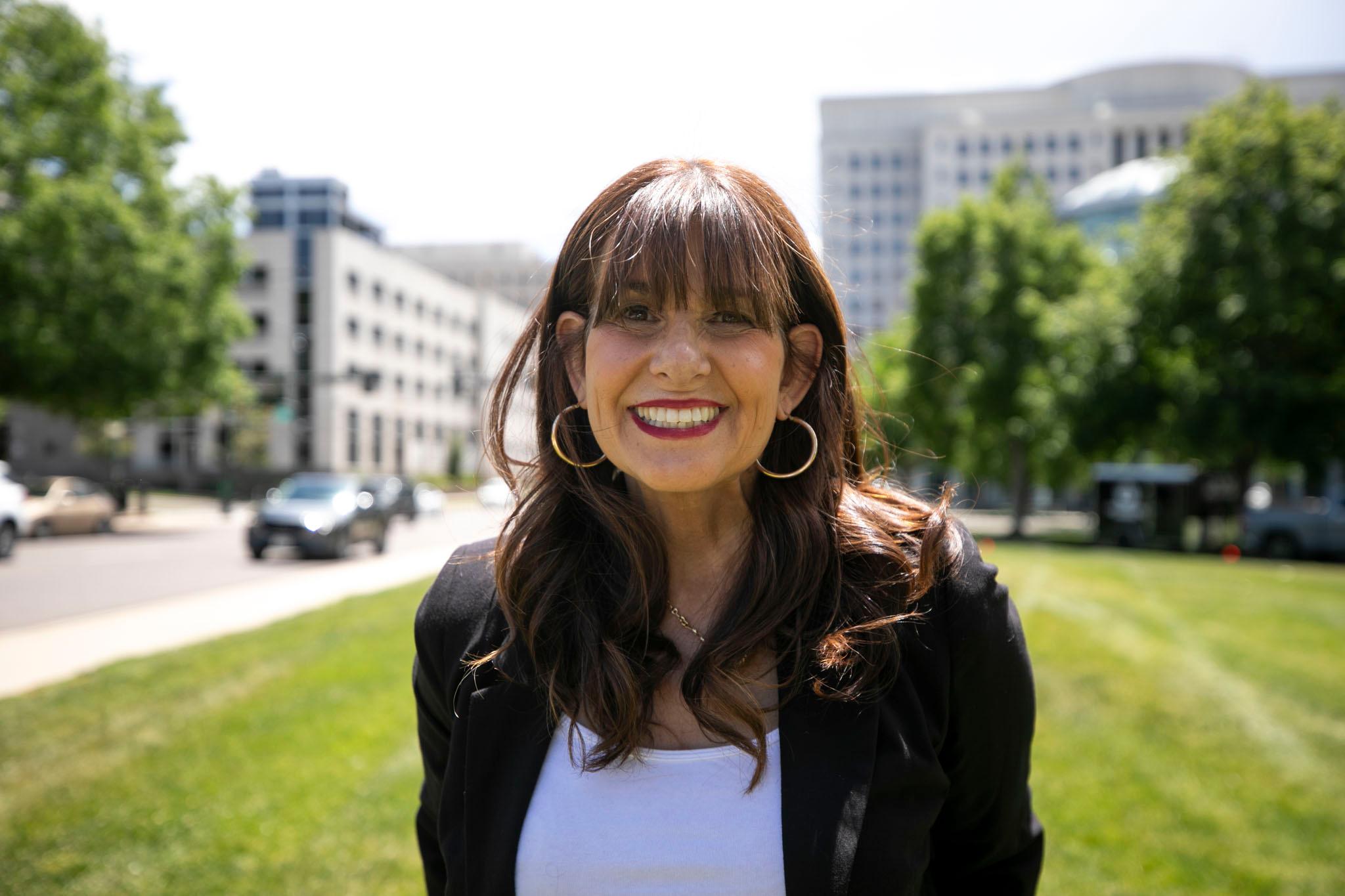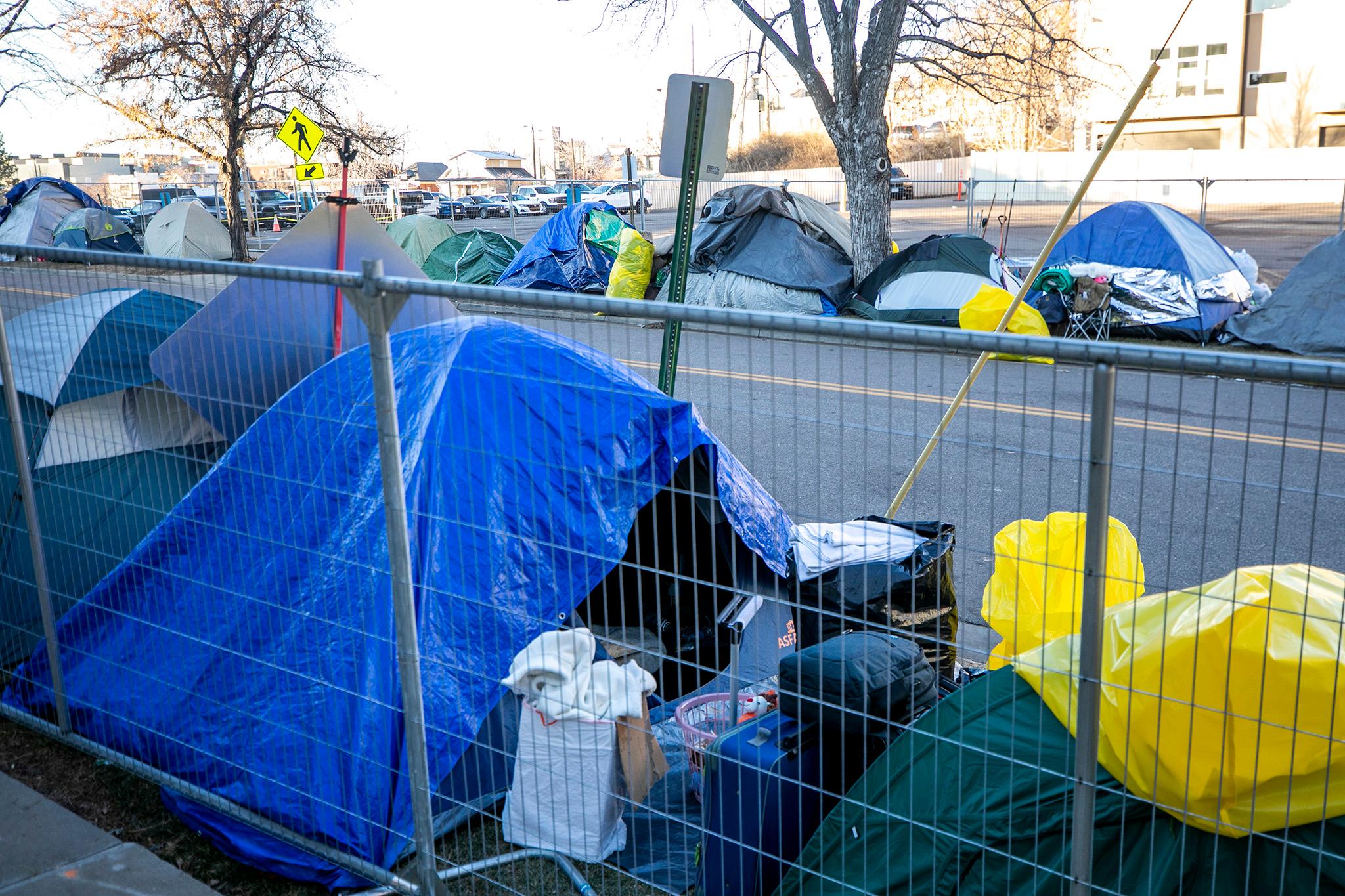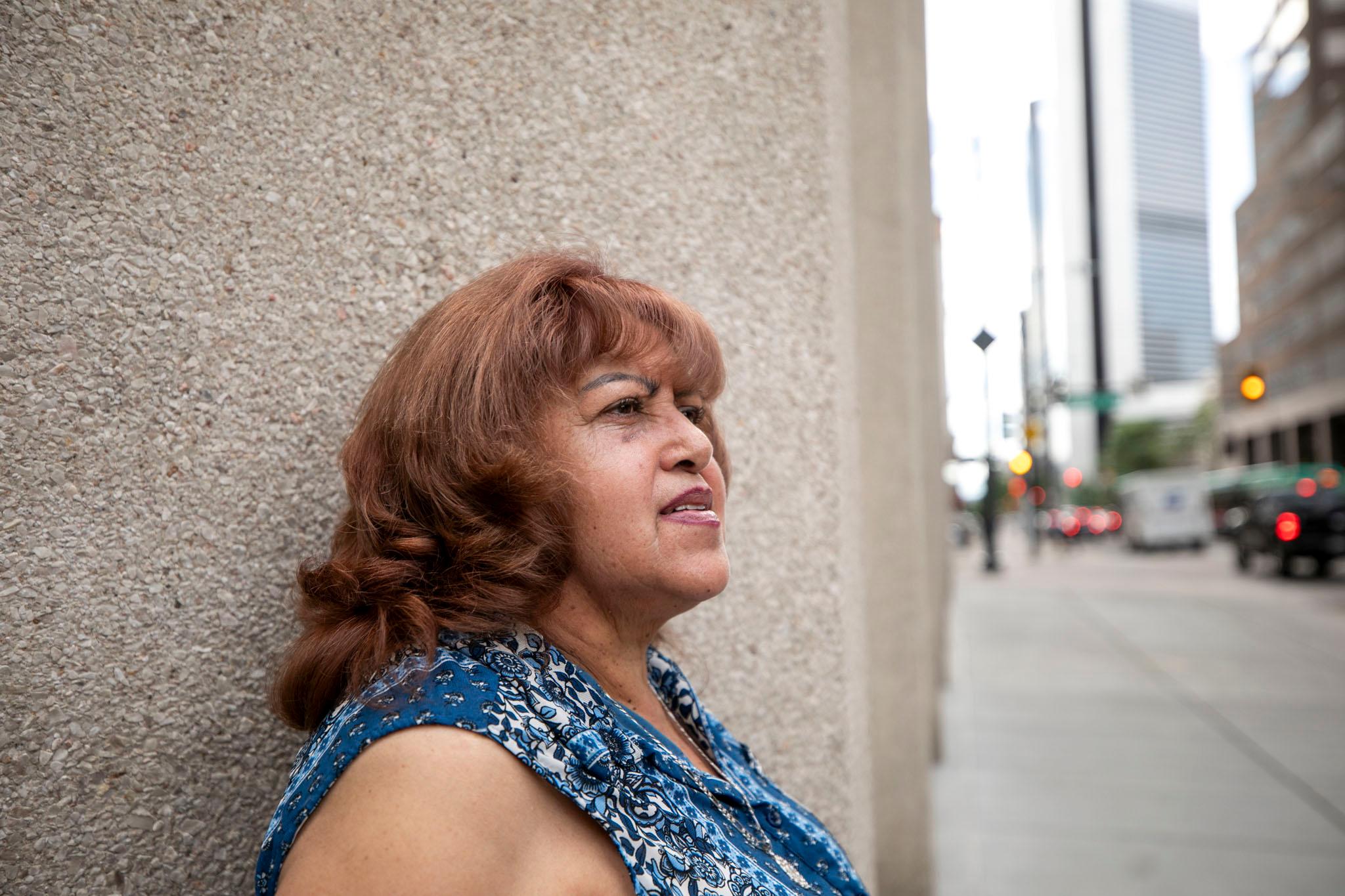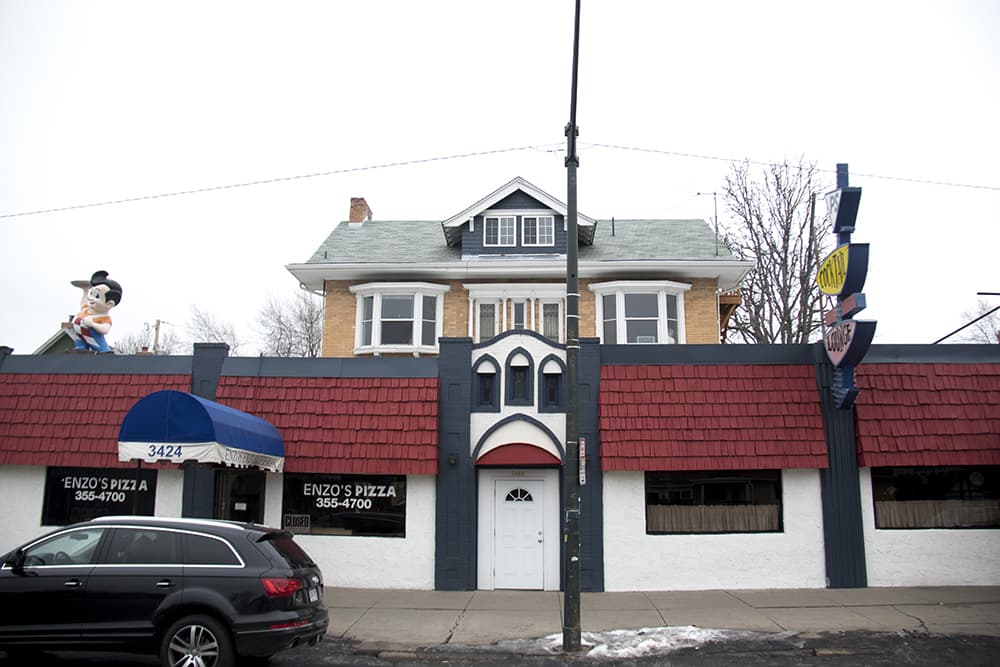The last time Leora Joseph worked in the Denver District Attorney’s office, she didn’t stay long.
It was 2017, and Joseph was hired by current Denver DA Beth McCann to supervise special victims prosecutions. Joseph lasted fewer than four months — a tenure so brief she doesn’t list it among the jobs on her resume.
“Beth refused to make any changes,” said Joseph. “I wasn't trying to fire anybody, I was trying to redirect a little bit. Beth refused to do that and I realized like we're never going to get anywhere.”
McCann and Joseph said the parting was mutual.
Now she’s trying to get back to the office, but in the top job. If she wins the Democratic primary on June 25 (no Republican is running), she’ll bring a lifelong commitment to crime victims to the job, along with a willingness to be a disruptor, even if that means rubbing some people the wrong way.
To Joseph, men can have sharp elbows, but women are held to a different standard.
“It is a female issue,” said Joseph. “Some people just cannot handle strong women.”
Joseph, a transplant to Colorado from Massachusetts, readily acknowledges a willingness to challenge existing systems. Her most ardent admirers see that as an asset, while a detractor says Joseph’s brief tenure in the Denver job should raise questions about her fitness to run the state’s highest-profile prosecution shop.
Her life story and interviews with those who know her tell the tale of an overachiever who — with the notable exception of the Denver job — has gradually risen through the ranks in her positions, taking on more responsibility at each stop.
Her background also indicates that should she become Denver DA, her tenure may be successful, or it may just be disruptive, but it definitely won’t be boring.
Leora Joseph's early years: Religion and service as centerpieces
Joseph, 55, was born in Brooklyn, New York. The family soon moved to Montreal where her father, Rabbi Howard Joseph, was placed by an ordination group into a small congregation.
“He grew that synagogue from I think 40 families to 2,000 when he retired. He was a great man,” said Joseph.
Her mother, Norma Joseph is an activist, an expert on Jewish feminist thought, and a professor of Religion at Concordia University. Norma Joseph co-founded a group in Canada that successfully lobbied in 1990 for women’s rights in Jewish divorce.
Joseph first met her future husband, Michael Wechsler, in 1979 at Camp Massad, a Jewish summer camp outside Montreal. They eventually became high school sweethearts. Wechsler said he was attracted to her smile and her passion for everything she does.
“I knew early on she was the right one for me, and she would be a great life partner,” Wechsler said.
Joseph went to Columbia University on a partial scholarship, and she studied law at McGill University in Montreal because it offered a full scholarship.
“I knew I wanted to do public service and I couldn't pay for law school, zero chance,” Joseph said. “I’m the oldest of four kids and my parents were like ‘we can’t afford this at all.’ My dad’s a rabbi.”
After graduating from law school in 1993, Joseph moved to Boston with her husband, a pulmonologist, where he was doing his residency. She was a legal intern with Alan Dershowitz after graduation while waiting on the results of the bar exam.
Joseph said she knew someone who knew Dershowitz, and she emphasized that he was a different person then. Part of her job included reading the voluminous mail Dershowitz received, many times from people asking him for help.
Once she passed the bar, Joseph said she declined a lucrative offer at a private law firm to prosecute cases for the Suffolk County District Attorney’s office in Boston. Starting pay: $26,500.
“We learned from both sets of our parents that money isn't everything, you need enough to get by and support your family, but if you're not happy in your career then you're not going to be happy overall,” Wechsler said.
Joseph vs the Judge
Joseph became part of a multi-year drama starting in 2000 that made headlines in Boston papers.
Joseph, and other prosecutors, believed the judge was going to hand down a lenient sentence for a transgender child abuser, allowing them to avoid prison. The judge, Maria Lopez, was “enraged,” according to reporting from The Boston Herald, when TV cameras and news reporters showed up in the courtroom for a change-of-plea hearing, apparently to put pressure on the judge.
Lopez postponed the hearing, writing: “The court finds that ADA Joseph attempted to embarrass and ridicule a defendant suffering from a psychological disorder. The court finds that the commonwealth caused this continuance because it sought to turn the court proceedings into a circus.”
Joseph told CPR there were strict rules in the DA’s office then, that prosecutors at her level were not allowed to call the media.
“Justice wasn't done then because the judge gave this person probation, who then went on to commit other crimes,” Joseph said in an interview.
Two years later, the episode became central to judicial misconduct hearings against Lopez, who admitted she had made sexist comments about Joseph. During the hearings Joseph’s reputation also took a hit — it was revealed she hadn’t provided Lopez all the information about the assault and had mischaracterized an interaction with the judge.
Both The Boston Herald and The Boston Globe covered the controversy, leading to a blistering column by Howard Manly in the Herald. He took Joseph to task for her conduct, noting that she didn’t work for the Suffolk County DA’s office anymore. “It's a good thing. Her handling of the case still leaves a stench.”
“That was very rough, a lot of headlines,” said Joseph in an interview.
Joseph left the DA’s office and spent more than a year as executive vice president at a Jewish day school outside of Boston called Maimonides School. By 2003, she was back in the Suffolk County DA’s office.
Taking on the church?
In the late '90s and early 2000s, Boston was the epicenter of the clergy sexual abuse scandal, following a series of investigative articles from The Boston Globe’s investigative team, made famous by the movie “Spotlight.”
In a campaign ad for Denver District Attorney, Joseph claims, “when their stories finally came to light, I came back from maternity leave to prosecute the clergy who committed unspeakable crimes.”
The campaign ad features an archival TV news report about 22 priests implicated in abuse, and it includes a picture of a front-page article from The Boston Globe about former priest John J. Geoghan, a serial abuser of underage boys who was moved from parish to parish by the Catholic church. Geoghan was indicted by a grand jury in Suffolk County in December 1999.
Joseph reiterated in an interview that she was involved in prosecuting many priests: “I don't remember all their names, there were a lot of them.” Joseph added that the Geoghan case was one of them.
But Geoghan was ultimately not prosecuted in Suffolk County, where Joseph worked.
In March 2002, while Joseph worked at the religious school, a judge ruled that the statute of limitations on allegations against Geoghan had run out in Suffolk County. Meanwhile, Geoghan was prosecuted and found guilty of charges of abuse in neighboring Middlesex County. He was sentenced to at least nine years in prison.
Suffolk County prosecutors were in the process of appealing the judge’s decision on the statute of limitations for those cases when Geoghan was killed in prison. Joseph was back in the Suffolk County DA’s office at that point, but was not listed as an attorney on the appeal.
Asked what role she played in prosecuting Geoghan given the lack of a paper record of her work, Joseph said she wasn’t actually in court for the Geoghan case, but was a supervisor of the unit. But when Denverite informed Joseph that Geoghan died before she ran the unit, Joseph backpedaled from the claims in her ad.
“Oh, OK, that's weird,” Joseph said. “I truly don't remember. Then I'm wrong. Then it's fine, and I wasn't involved in Geoghan.”
Joseph couldn’t remember the names of any priests she prosecuted.
Denverite found that Joseph was the lead prosecutor on a case against Rev. Frank Genevieve, who was charged in 2008 with raping three teenage boys in Boston in the 1970s and 1980s. The priest pleaded guilty before trial and avoided any prison time.
What does the Denver District Attorney do?
The Denver District Attorney’s Office prosecutes defendants accused of state crimes that occurred in the city and county of Denver. The office has about 250 employees, about 85 of whom are attorneys, while the rest are investigators and support staff.
The office prosecutes about 13,000 cases per year in felony, misdemeanor and juvenile court. The DA’s office also has an appellate division responsible for appealing or defending cases before appellate courts, including the Colorado Supreme Court.
Specialty units dealing with cases involving drug or mental health problems with defendants or specific crimes like domestic violence, gang crimes or human trafficking also work in the office.
But much of the work involves making charging decisions on cases presented to the office by Denver Police, then following up by prosecuting those defendants.
Two of the victims who spoke at the sentencing were disappointed by the deal, and the lack of jail time, but acknowledged that other victims didn’t want to testify.
“When I look back on these decisions they're heavy decisions and supporting what victims want is such an important piece,” Joseph said. “It’s not always the only thing to guide us, but we can’t ignore it. I can’t ignore it.”
Another high-profile case in Boston
That same year, in 2008, Joseph won a high-profile case at trial against a kidnapper and rapist that led to a 30-year prison sentence. The case was unusual in several ways. There was DNA evidence. And the defendant represented himself, meaning the victim was cross-examined by her attacker.
After he was sentenced, the victim comforted Joseph, who was crying with relief, according to media reports.
Later that year, she was given an award by the Suffolk County DA’s office, with the District Attorney, Dan Conley, noting that Joseph represents “the very best that our office has to offer.”
Move out west
After 20 years in Boston, Joseph moved to Colorado in 2013, when her husband took a job at National Jewish Health. Joseph eventually was hired as the chief of the special victims unit for the 18th Judicial District, covering Aurora, under newly elected DA, Republican George Brauchler.
Her new colleagues in Colorado were immediately impressed by her.
“She had that passion and it became obvious immediately upon meeting her,” said Matt Maillaro, who started at the same time as Joseph in the 18th Judicial District as senior chief deputy.

Joseph was eager to change the office to support victims: having prosecutors and investigators proactively get out and meet with victims and families where they live, and visit crime scenes. She also created more specialized teams for domestic violence and human trafficking.
“She was really interested in transforming the way we dealt with victims and kind of a more victim-centered and trauma-informed approach,” Maillaro said.
But he noted that not everyone was on board.
“There was definitely some tension. There are folks who are comfortable, and one of the things we agreed to right away — Leora, I, the District attorney and other leaders in the office — that we were going to have to make some people uncomfortable,” he said.
Joseph's influence and work in Colorado grows
Joseph impressed senior leaders in the office with her work ethic. While juggling family, a new home and new team she had to take the Colorado Bar exam after 20 years as an attorney, and passed on the first try.
Soon, as she took on more within the office, her staff grew from about 15 to about 50 people.
The 18th Judicial was a sprawling district with a range of law enforcement agencies, and Joseph was active in outreach to many stakeholders, displaying an almost boundless energy in her approach, Maillaro said.
That is evident in accolades included in her personnel file. In one case, Joseph worked with Littleton Police on the case of an abused baby.
“I had several detectives and supervisors come into my office one by one,” starts an email from a Littleton Police commander to DA Brauchler. “Unsolicited, they each told me how much they valued Ms. Joseph's expertise, professionalism and teamwork. Unfortunately, we all know that these heinous cases will happen again. We are grateful that we have partners in your office like Ms. Joseph to work with to ensure we are at our best for the citizens we serve.”
A brief, turbulent time with the outgoing Denver district attorney
Joseph left the 18th judicial district in 2017 to join the newly elected DA of Denver, Beth McCann, a Democrat.
She wasn’t there long.
“There was definitely some culture issues in that office,” Joseph said. “I'm not sure that [McCann] and I share the same vision of public safety at all, we don't share the same vision about prosecution, and I don't know that we share the same management vision either.”
Joseph couldn’t recall exactly how long she was there (it was less than four months). It’s not listed on her LinkedIn, nor in resumes she submitted for subsequent jobs.
Denverite requested Joseph’s personnel file from the Denver DA’s office, but there were no records that could be released.
McCann didn’t offer any specifics.
“It was a mutual decision. She wasn't fitting in particular at the office,” McCann said. “There were issues of should I be bringing people in from the outside or promoting people from within, so there was that kind of cultural issue. I was not aware that she felt that we didn't see eye-to-eye on prosecution. I thought we were on the same page.”
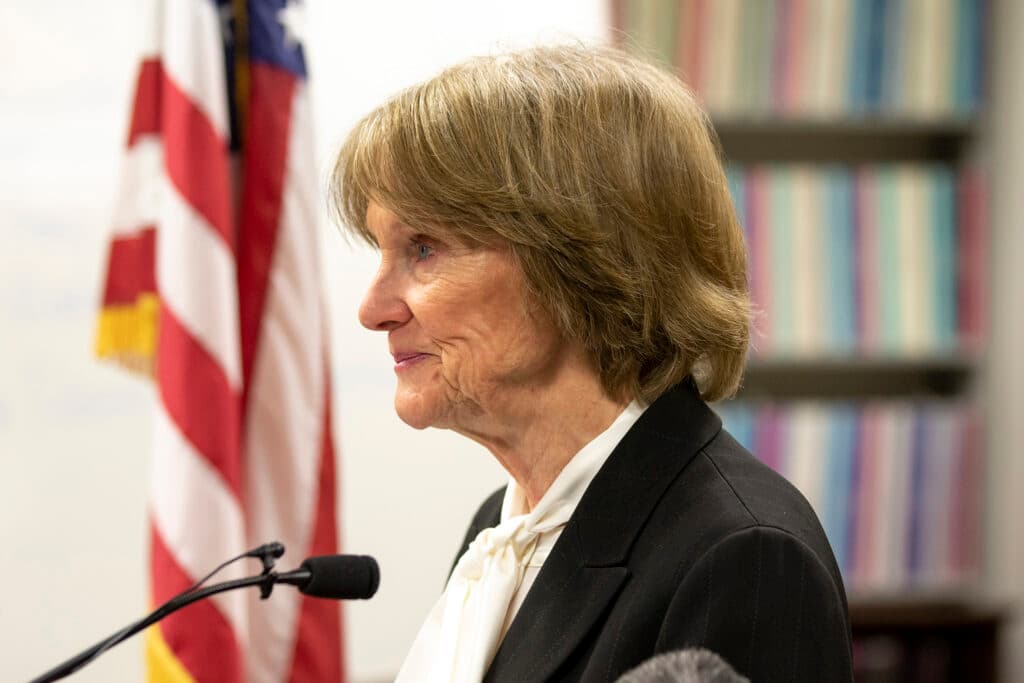
McCann has endorsed John Walsh, Joseph’s opponent in the Democratic primary.
Helen Morgan, who ran against McCann and lost in 2016, but remained a top deputy in the office, said she doesn’t have direct knowledge of Joseph’s short time in Denver.
“I find it very illuminating,” Morgan said. “That Beth McCann has chosen to endorse, not the person who worked for her for several months, not the person who she recruited to come into the office, but her opponent, John Walsh.”
Joseph has said she would enact widespread change in the DA’s office. In particular, assuring that all prosecutors follow cases from start to finish, a process known as vertical prosecutions. And Joseph said she would start specialized units on gangs and guns.
“I'm going to do everything differently," Joseph said at a recent candidate forum.
That line stunned McCann.
“Honestly, I’m flabbergasted by that statement,” McCann said. The DA’s office already does some version of what Joseph has proposed. For homicides and other big cases, there is vertical prosecution. It’s impractical to apply to all cases, said McCann. She also noted that there is an organized crime unit, which handles gangs.
“I've started several programs, like human trafficking and elder abuse and diversion and restorative justice and firearms relinquishment and a conviction review unit,” McCann said. “When she says she wants to change everything I don't know whether she would want to eliminate some of those programs.”
Working at the attorney general's office, then with Brauchler and the state
Joseph said aside from the poor culture fit in Denver, she had a “massive opportunity” for another job — to work for Colorado Attorney General Cynthia Coffman, as the Republican’s Chief of Staff.
Joseph spent about two years with Coffman, but she said it provided valuable experience: “I’d never managed such a large office.”
Joseph left the AG’s office when Coffman’s term ended, and went back to work for Brauchler as his managing chief deputy for two years. Joseph left that job when Brauchler’s term was up, and she spent about a year and a half at the Auraria Higher Education Center as General Counsel and Chief Admin Officer.
In July 2022, she went to work for the state, taking over as director of a new mental health agency the Office of Civil & Forensic Mental Health in the Colorado Department of Human Services. Management of the state’s long-troubled mental health hospitals and competency process for criminal defendants is an immense challenge.
Joseph said the office has 1,800 employees and a $350 million budget (larger than the staff of the Denver DA’s office) and is “tasked to transform how the court system handles severe mental illness, drug addiction, especially as some of our sick neighbors interact with the criminal justice system.”
Joseph has curtailed her hours at the state to run for DA.
“I'm running because I really love Denver, and I know I have solutions that I know will make a difference. Real, practical solutions,” said Joseph. “I have a strong vision of what safety can look like for everyone, and I have the years of experience both in the DA's office space and in the behavioral health space to make change.”
Leora Joseph on the issues
What is your top priority?
“My number one priority is making sure that victims feel heard and feel supported. I've spent over 20 years in the district attorney system. I've worked on the hardest cases of sexual assault cases of child rape, started one of the country's first human trafficking units. There are victims that need to be believed. They need our support and they need a district attorney's office that they feel is going to work for them, that's going to listen to them, help them build their cases and present their cases and get justice.”
What needs to be changed in the DA’s office?
“I'm going to do everything differently … First of all, I want to make sure that we're doing a vertical prosecution model, a model where victims of all crimes meet their DA on day one, and that's the same prosecutor that takes them to trial, instead of this endless back and forth switching around with prosecutors.
Second of all, I want to create a unit for gang violence, for gun violence. We have very serious gun violence [problem]. I want two prosecutors dedicated full-time only handling serious gun violence cases, move those cases quickly through the system, not getting bogged down with discovery so that we're able to hold people accountable there.
Three, I want to make sure that we're operating on the safety spectrum so that the people who are seriously mentally ill, the people who are drug addicted, we're working in partnership with Denver Health, the Sheriff's office, community mental health rehabs, all of the systems coming together to create opportunities, instead of keeping them in jail where they don't belong … moving them into treatment. I want to have someone help coordinate all of the nonprofits that are doing the important work in the justice system that are all so siloed. We've got to be talking to each other. We've got to come together. These are just some of my ideas.”
Violent crime is at the highest level in a generation in Denver, what can you do to change that?
“I want two prosecutors dedicated full-time only handling serious gun violence cases, move those cases quickly through the system, not getting bogged down with discovery so that we're able to hold people accountable there … I want to make sure that I have people in my office in the anti-gun, anti-gang violence prevention space to help advise the das on ways to think about cases differently, and that applies also to police accountability. I plan to hire the first in the country director of police accountability to work and advise my prosecutors on what community's perspective is on policing, so we make decisions based on facts.”
Do you support safe injection sites?
“No, I’m not in favor … The data I've seen in cities with safe-use injection sites, there's an overall increase in overdose deaths … And so before Denver takes on this idea of basically having state legalization of hard drugs and supervising it, we need a lot more information.”
What role does that DA have in influencing police policy?
“We need to be able to work with the police, otherwise we are going to get nowhere. We need to be rowing in the same boat, and when there's tension and confusion, that is when things begin to break down. Can I hold people accountable that I work with every single day? We all do that in our work relationships, in our personal relationships, you can support and hold accountable. Those two things are not oppositional.”
